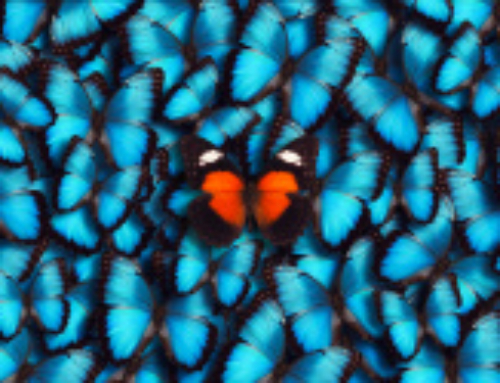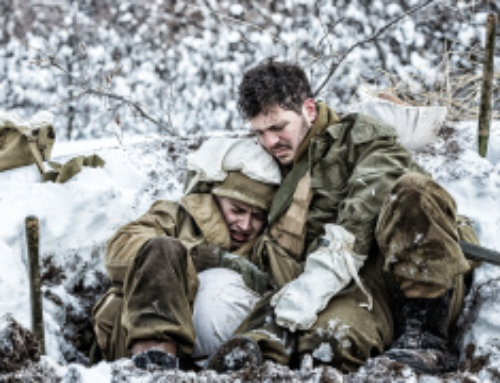One day this wise Native America chief took his grandson on a walk about. He says to his grandson, “There is fight going on inside of me. It is a terrible fight between two wolves. One wolf is evil, full of anger, envy, hatred, rage, resentment, greed, and arrogance. The other is good, full of joy, peace, love, hope, kindness, empathy, generosity, and compassion. The same fight is going on inside of you and every other person.” The grandson thought about this for a few minutes and asked, “Grandfather, which wolf wins?” The chief replied thoughtfully, “The one you feed.”
What if we fed compassion more deliberately? How would that change how we, as human beings, show up for each other? It is clear where and how we feed our destructive nature; a few examples are through the violence on television, in movies, and video games, as well as believing that some humans are superior over others for any reason—race, sexual preference, gender, financial success to name a few. When we believe we are superior to another, we turn the other person into an object which takes away their feelings and experience. Our psyche is thinking of that person no differently than a book on a shelf. Thinking from this state is super common for most of us—some of the time. It is also a huge deficit when relating to others.
How do we stay out of thinking we may be superior? It’s the allowing of others to be different that changes the tone. If I see another person participating in one religious tradition and I realize that it is not a tradition that works for me but at the same time I am open to understanding her tradition and her experiences, then I am in a curious relationship with the differences between us. That is healthy and powerful, it builds connection. If I were to relate to her from a superior perspective, I would be thinking that I am right, my tradition and views are correct, and hers are wrong. This superior thinking divides relationships, often creating enemies and grave discord. The more we live with psychological wholeness the more we see the unity of all living things.
The research that is available on the harmful effects from the violence and abuse we ingest is unquestionable and dangerous. Humanity is digesting violence by the truckload with the hours spent unconsciously watching television, the news, movies, and playing violent video games. I am not suggesting that we stop all television, news, movies, and playing all video games but I am saying it is time we pay attention to how much violence we are allowing into lives. Also, as parents it is our responsibility to teach our children to be aware of what they ingest by limiting their time with video games and violent media.
It is difficult and inconvenient to change our behavior. As all of us have experienced to some degree—excuses come out of the woodwork when we set out to do something different. Whether the change has to do with eating healthier to lose weight, eating less sugar to keep our diabetes in check, drinking less, shopping less, cleaning the house more frequently, or living in a more organized way. It’s natural to fight change; the problem comes when we believe the excuses and are unwilling to get uncomfortable while the rewiring of our brain takes place. Just like when it’s uncomfortable to go back to the gym after a six-month hiatus; your muscles will most likely be sore to the point you can barely walk the next day. So is our mind when we begin changing the way our synapses have been habituated into firing—it’s uncomfortable to change. Our natural inclination is to fight the discomfort by staying the same.
Shrugging off the responsibility to limit our intake of violence might sound something like, “It’s too hard, I am too tired, it’s fine, everyone else is doing it, I am different, I don’t have violent tendencies, it doesn’t affect me that way.” Those resistant thoughts allow the cycles of harm to repeat.
As we become more inclined to ask the question, “Did I consciously choose to feed the intentions of joy, peace, love, hope, kindness, empathy, generosity, and compassion in my life today?” We do something to move ourselves and our world towards greater wholeness. Our compassion instinct needs to be fed deliberately and consciously. What we think about, becomes our reality. What we do repeatedly, becomes our default setting. What we spend time practicing, becomes what we are good at.
We see atrocities all over the world of mass shootings and grave harm to humanity. Some of the common ways we feed hate is through abuse, bullying, and shaming. Hate is often fueled by fear, as many of us, feel fear when we see differences rather than curiosity. When we see differences as a threat, we are most likely not in a state capable of compassion. Compassion is an evolved state, and it takes some degree of self-awareness and wholeness to not be threatened by people and situations that our different from our own. It takes self-worth or a sense of being ok, to become curious about understanding differences.
We become more psychologically whole as we feed our psyche more balanced and healthful nutrition such as seeking deeper self-awareness coupled with mindfulness meditation. Those who live with compassion do so because they choose to—they practice it. Compassion is not a fluffy, cotton candy like emotion; it is strong, stable, steadfast, and courageous. Compassion changes the world, it gets stuff done, it spreads light and love.
Psychological wholeness makes compassion possible. Hate crimes do not exist when everyone in the room is psychologically whole. Hate crimes do not exist when everyone sees the human being in front of them, rather than an object who threatens my safety or well-being. Disagreements will always be present in life but how we deal with disagreement is a choice. Choosing compassion does not mean there isn’t angst and disliking of other people and difficult situations; but it does mean, through the challenging situation we still see the human being on the other side of the interaction. Both people respect the other’s humanity by valuing the others experience and feelings with as much importance as their own. Effective conflict gives rise to innovation, growth, change, and healing. Hate and violence stoke the fires of fear, rage, anger, and discord.
It is time to take responsibility by feeding our compassion instinct deliberately every day. It’s a choice that happens in the still and quiet moments of life that seem insignificant, “Would it serve me better to read a book or watch television?” or “Would it serve me better to play a video game or do something that inspires my creativity?” The media will not stop feeding violence to the world. The only person who can stop feeding your psyche violence is you. When many of us choose to take responsibility for what we feed our psyche and we do what it takes to expand our self-awareness, in time, we will gain momentum as a great force, united, to bring goodness and wholeness to humanity.
Three suggestions to consider that will lead to more self-awareness and consciously feeding your compassion instinct:
- Mediation is a very effective tool for cultivating compassion and other pro-social emotions, as well as generating more peace and well-being in our lives.
If you are interested in learning more about meditation, there are many on-line guided mediations available to help get you started, or you may try one of the free guided meditations on my website. https://www.jacquelynrinaldi.com/guided-meditation/
Or on my You Tube Channel https://www.youtube.com/channel/UCr4rk37YaL_8flmlyo5kmpg
Insight Timer is an app that has a meditation timer and many guided meditations available for free. https://insighttimer.com/
- Consciously choose to watch inspiring shows and movies, maybe a biography or movie based on a true story that has an uplifting premise. Consciously choose to limit the violence you ingest through the television.
- Work on your self-awareness. The more self-awareness we have the more apt we will be to live with compassion. It is key to look at our own motivations about why we feel the way we feel. How aware are you of your needs—what do you need to feel safe and ok? How aware are you of your inner triggers? When you get triggered about something do you see the root emotion that lives inside you or are you lost in the upregulated emotion of anger or whatever it is? How quickly does your triggered emotion create a reaction? If there are feelings inside that are causing friction, limiting your ability to live with peace, joy, and compassion, diving into a deeper understanding of the self may be extremely helpful. Are you able to understand how you feel and communicate your feelings to another person when you need to do so?
Jagged edges in our psyches are often associated with feelings of depression, unmet needs, shame, dissatisfaction, lack of meaning, feelings of being a failure, not living up to your potential, pain from the past, betrayal, feelings of having no control, and more. Working on self-awareness is a lifelong journey. It is no doubt very painful and difficult at times—it’s painful to look at the things that keep us stuck, that’s why we stay stuck…its easier not to investigate the darkness. But when we’re ready to do the work, courage appears after we take the first step and the potential to create the life we hope for, becomes our reality.
Comments, experiences, and feedback are always welcomed.
Sending warmth and all good things.







Leave A Comment